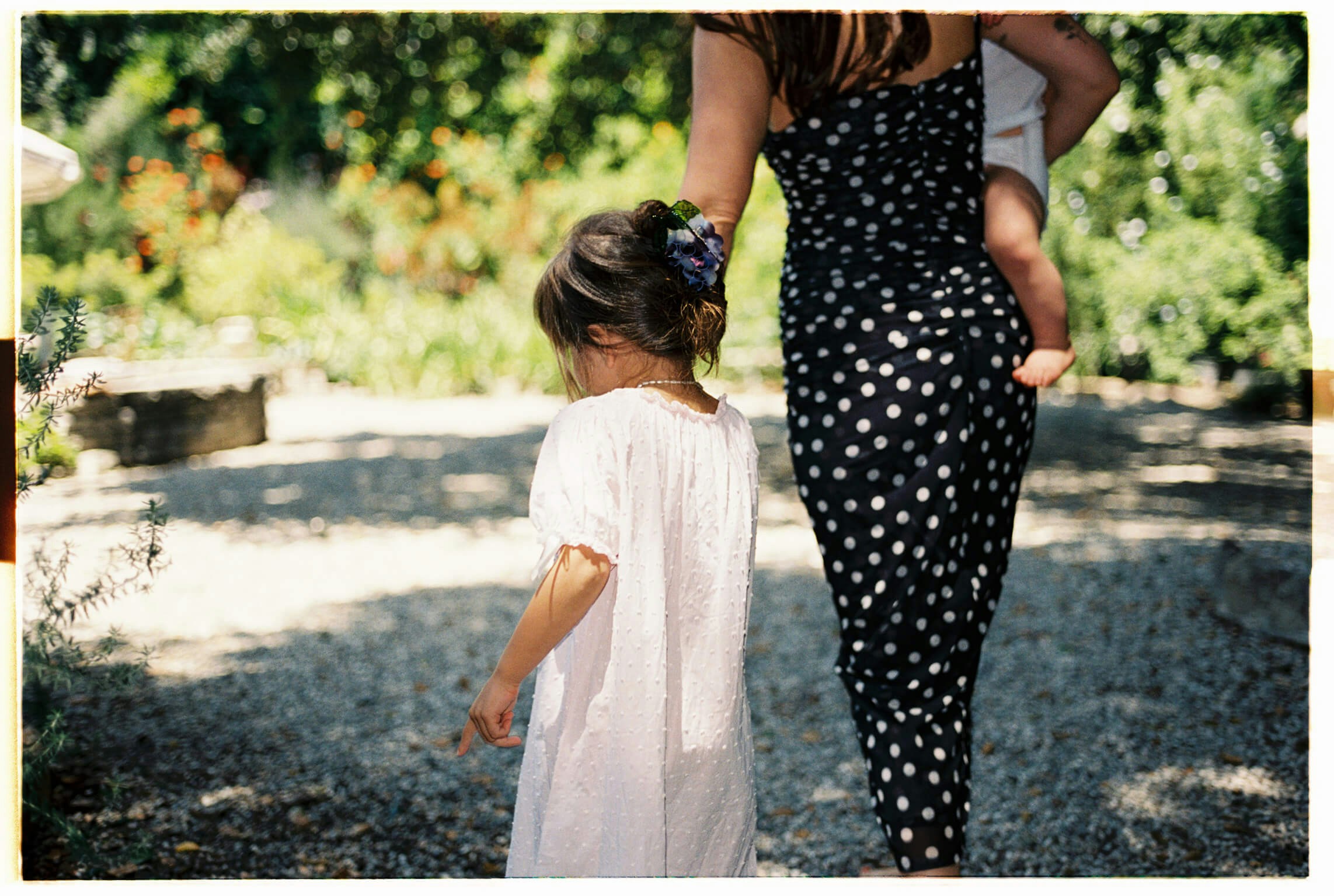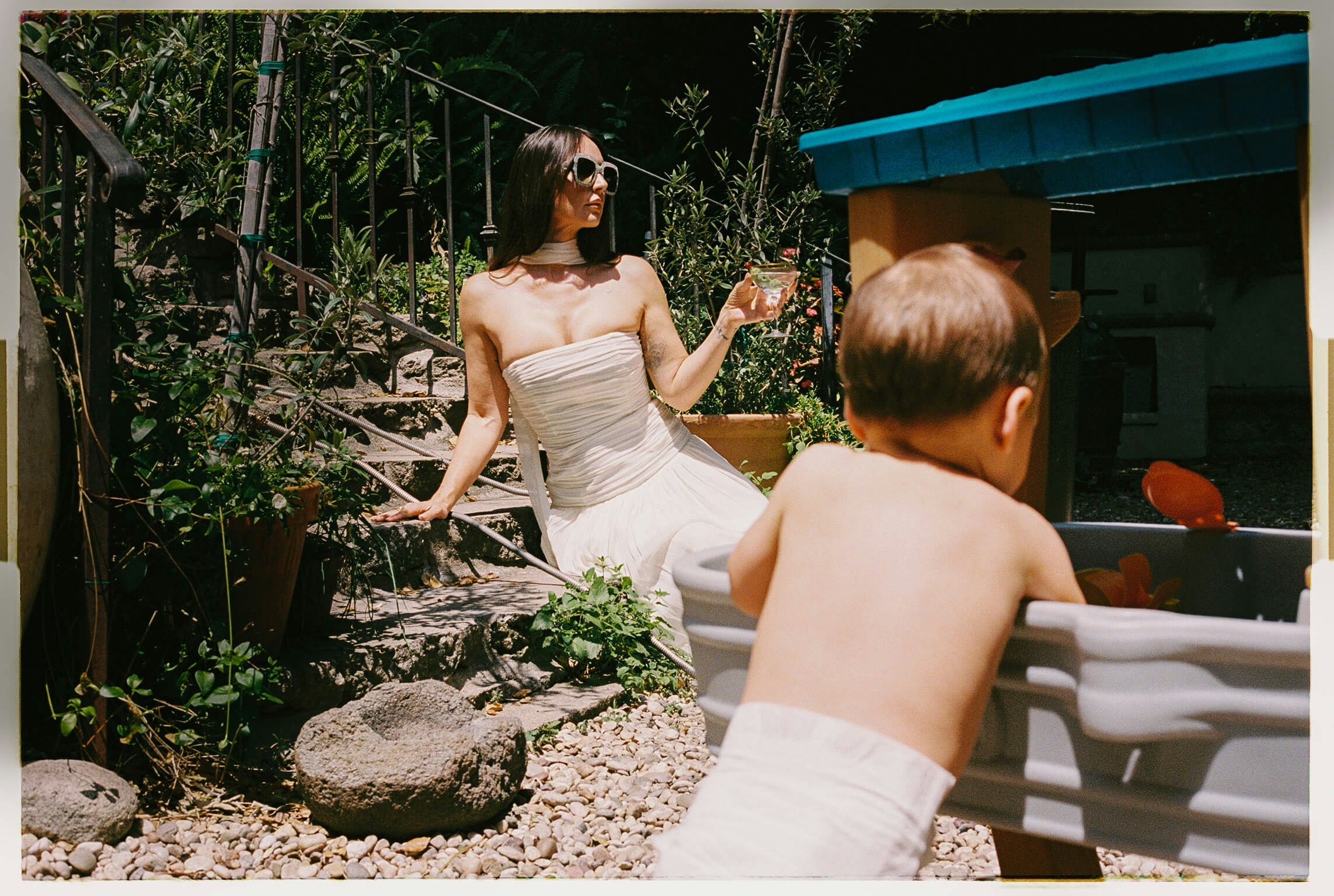
Getting Sticky With Pia Baroncini
Photos by Paris Mumpower, Words by AnaMaria Glavan
The crappy part about social media is that it spoon feeds us an overly polished, hyper-processed, Stepford-style version of what parenting should look like: from when your kid should hit certain milestones to whether or not you should sleep train. It’s a curated algorithm of “shoulds” that feels detached from the messy, emotional, joyful reality of raising children.
Pia Baroncini is the opposite. The LPA Creative Director is unfiltered in what she shares, which includes glimpses into her daughter Carmela’s autism diagnosis. When 1 in 31 families are navigating similar terrain but so few talk about it publicly, the silence becomes its own kind of stigma. And for parents just trying to figure out where the fuck to start, that silence isn’t only isolating; it’s devastating.
That’s why someone like Pia matters. She makes space for hard things and finds a way to give them shape and softness. She can reframe something grim with humor, sometimes sarcasm, and a very appreciated sense of fun. That attitude feels like a sigh of relief and permission to other parents, too: it’s okay to enjoy your life even when all of its aspects aren’t perfect.
At Spread the Jelly community dinners, it’s tradition to go around the room and ask: Who would you love to see featured? Time and time again, we’ve heard the same name: Pia Baroncini.
Everyone says they want a village. But a village only works when people speak. Pia speaks. About her children, about treatments, about prioritizing her marriage again and again. And that’s what inspired so many people at that table to volunteer her name: curation is boring. We want honesty. Maybe a little fun, too.
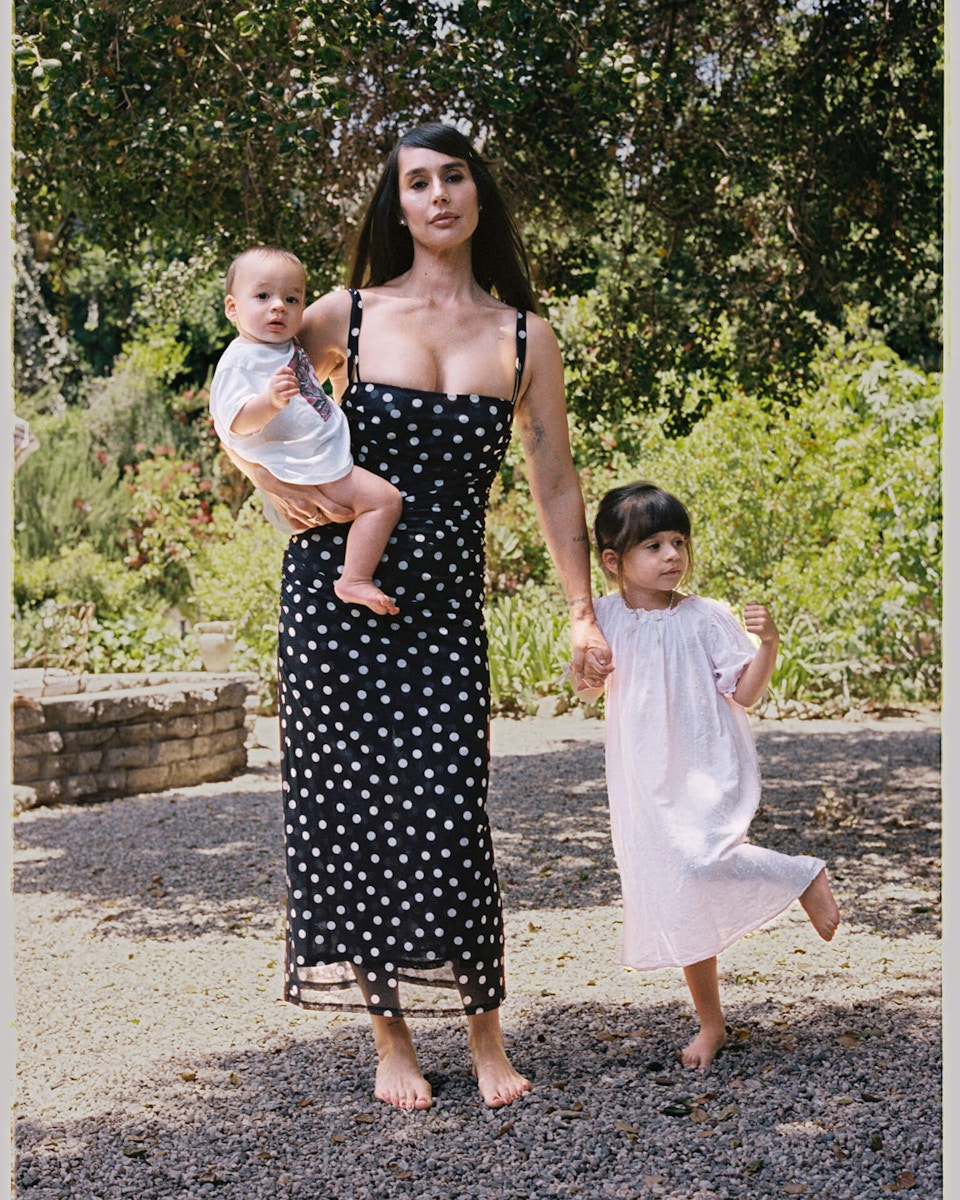
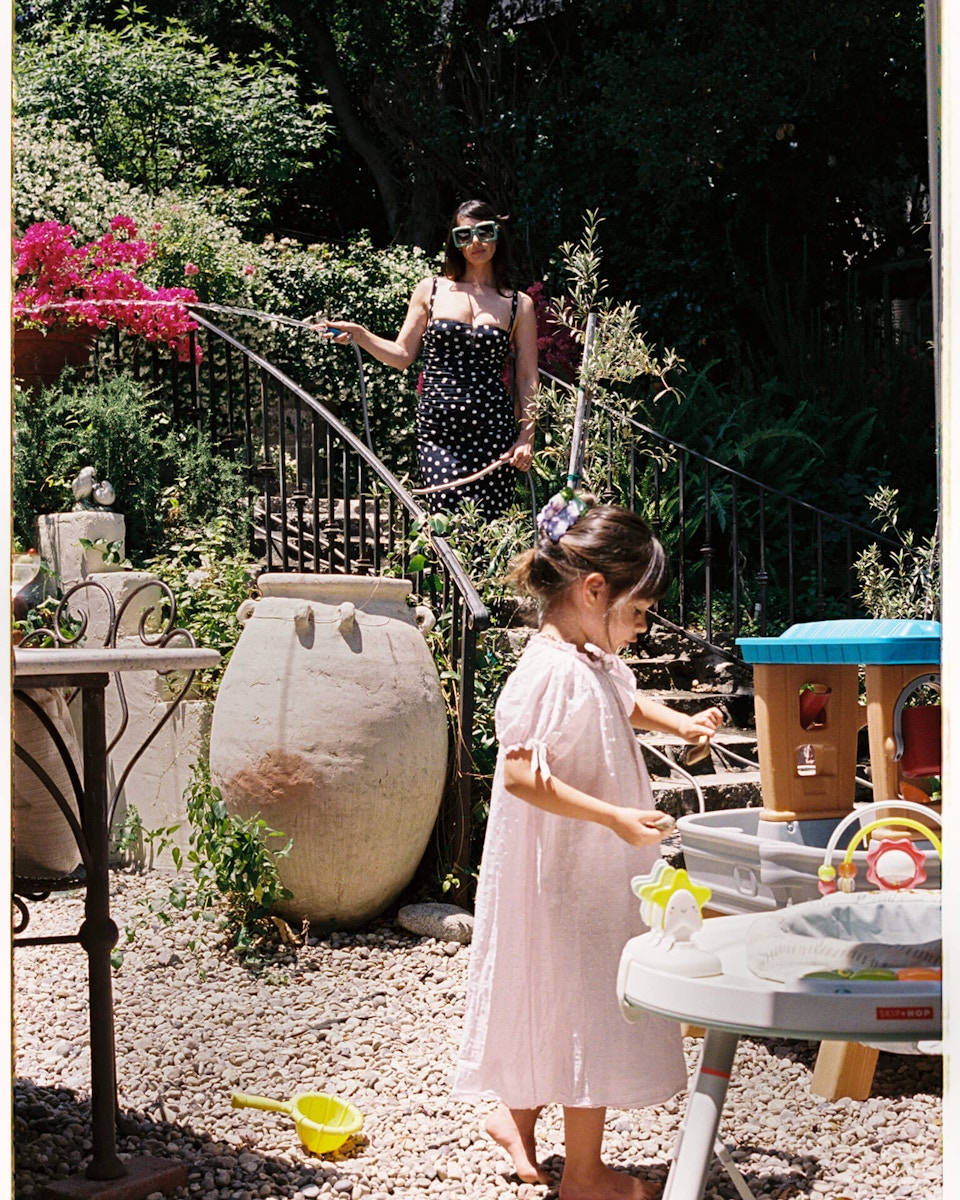
Per your request
I literally just recorded a solo podcast before this where I said: I don’t know how to talk about this. I don’t know how much we should or shouldn’t share. But a lot of people are asking, and I want to tell part of my journey. I actually think it’s more important for people without children with autism to understand neurodivergence because these are our peers. And we need to operate with an extreme amount of empathy.
I knew something was going on with Carmela when she was around a year old. I was actually being intensely annihilated on the internet for “not noticing,” meanwhile I was advocating my face off in private and taking her to every doctor in LA trying to get answers. She’s been in early intervention therapies, she’s completed amazing programs through UCLA, all of it. This was before an official autism diagnosis. Now we’re doing tons of interesting, cool therapies and she’s making so much progress.

" I actually think it’s more important for people without children with autism to understand neurodivergence because these are our peers. And we need to operate with an extreme amount of empathy."
Carmela just started pointing to indicate what she wants and that’s after two years of therapy. The way we knew something was going on with Carmela was because she didn’t pull to stand. On the flipside, Carlo pulled to stand early. He’s so strong. She doesn’t make a lot of eye contact. Every time we take him in public, the entire restaurant will say that they’ve never had a baby stare so deeply into their soul.
The hardest part about having two children right now is that Carmela has autism and Carlo doesn’t. And all the awesome, cute things that he does are a reminder that she doesn’t do that. That’s a whole crazy thing I never thought I’d have to experience. I don’t even want to give it an adjective, but it’s a very layered emotion. But what I will say is that when you get those little moments with Carmela you dream of, it truly feels like you’ve been touched by an angel. She is so pure, so sweet, deeply empathetic — all these therapies just seem like I’m having to teach an angel to be a human, when truly I wish I could just be a part of the beautiful world she lives in. She’s the lucky one.
Carmela’s autism is caused by a very rare genetic mutation, one that we don’t carry. So I knew the chances of Carlo having it were extremely low. On top of that, I’m not a worrier. Everyone was asking if I was worried and I’d say, I’m not worried about anything. I’m lucky to wake up today. If I open Pandora's box of worry and anxiety I wouldn't be a functioning human being. I have a beautiful vulnerable child who can’t communicate and elopes every two seconds. It’s unbelievably dangerous. If i start future-tripping, I’m fucked. Everything’s a miracle anyway. We are endlessly blessed to have two healthy children, to even HAVE children.
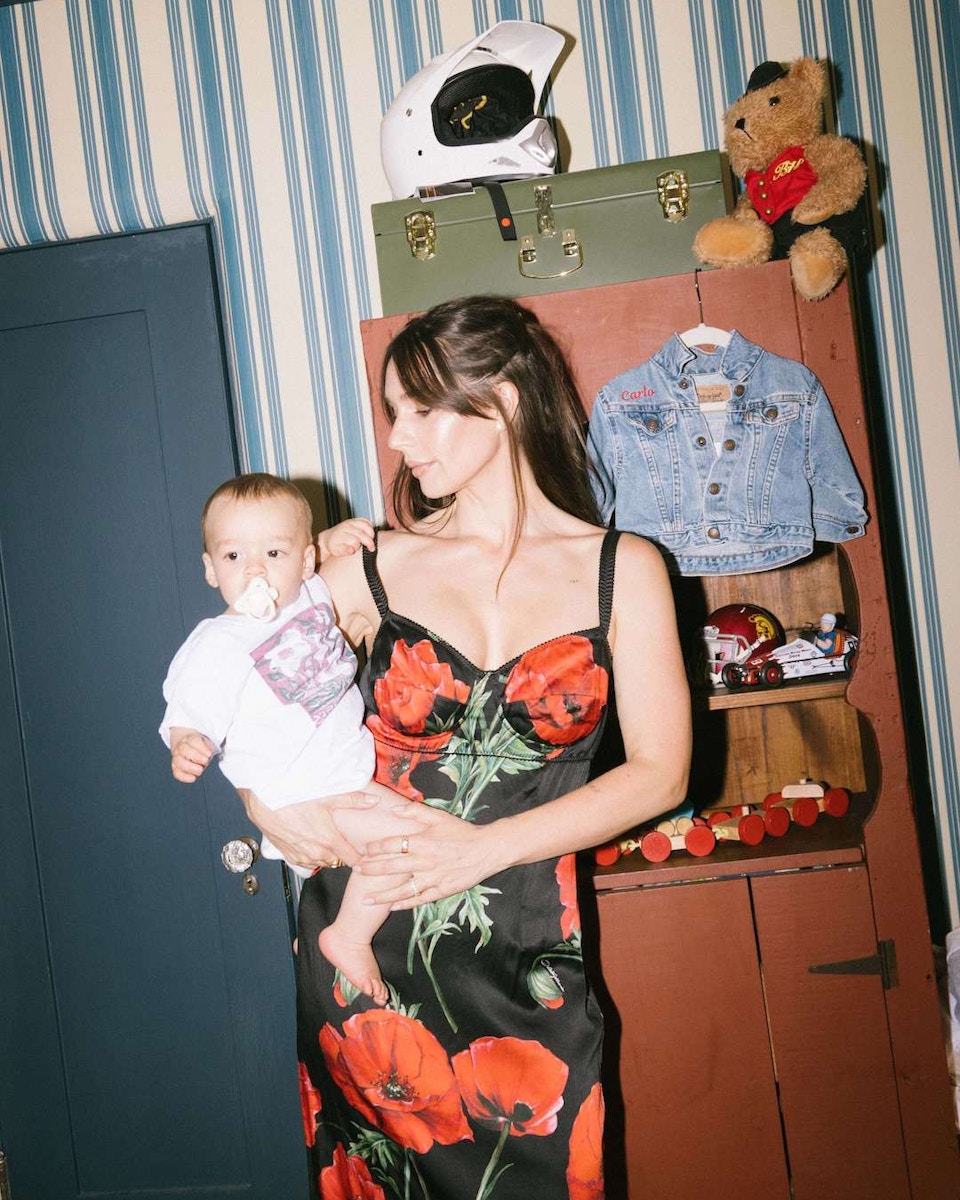
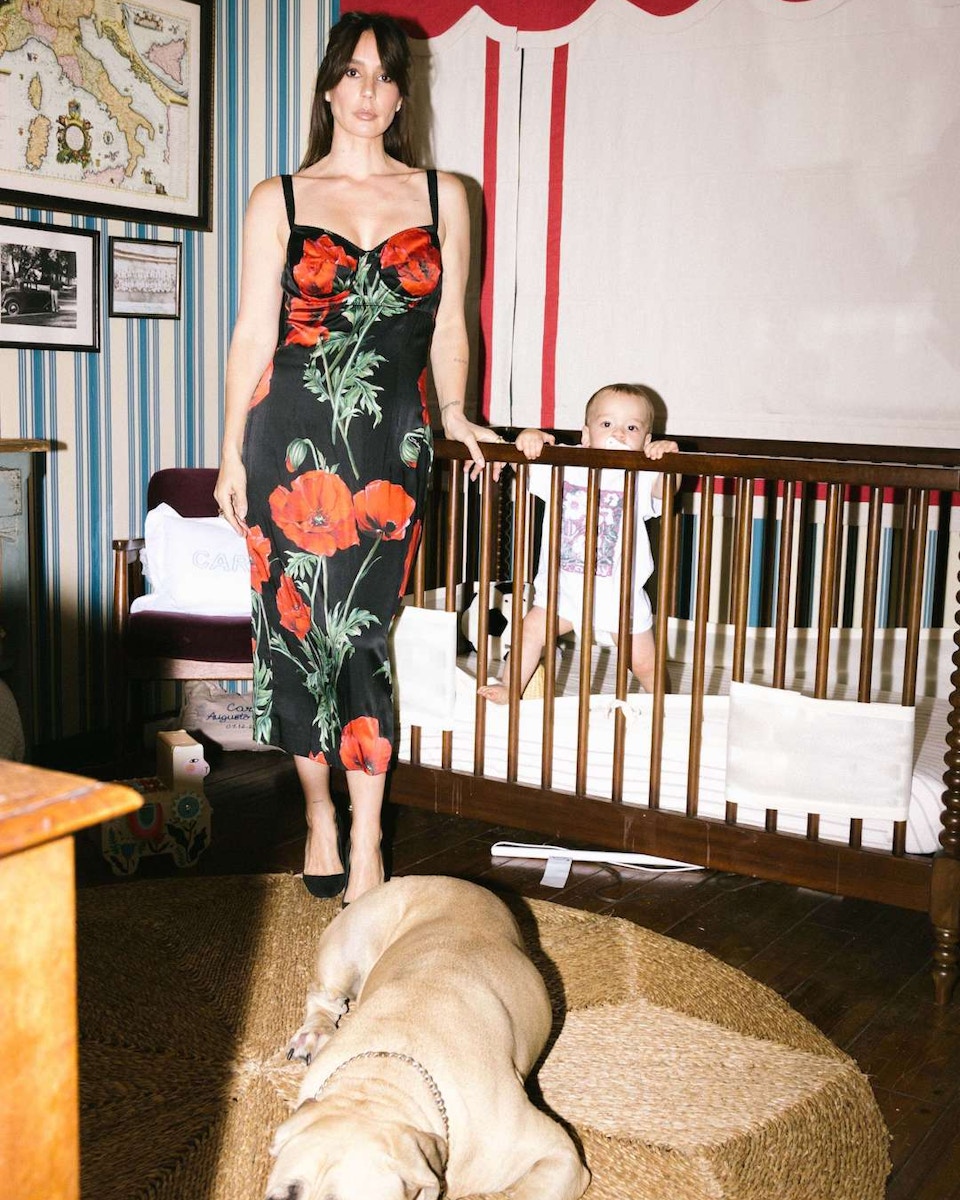
"The hardest part about having two children right now is that Carmela has autism and Carlo doesn’t. And all the awesome, cute things that he does are a reminder that she doesn’t do that. That’s a whole crazy thing I never thought I’d have to experience."

A (fun, functioning, sometimes chaotic) three-generation household
We never had a plan to live with my mom but when my dad died, she couldn’t afford the house. They’d been here for 40 years and without even really talking about it, me and Davide moved in and started cohabitating. It was very hard at first, and there was lots and lots of screaming. And then suddenly we found our flow. We created boundaries.
But I would always say to Davide that once we had kids, it would be so helpful. And not just for us but for her too. Because no person who raised five kids (she has two of her own and three stepkids) should go from living that full of a life, plus being a caretaker for my dad during the last ten years of his illness, to being alone in an apartment. Her cognitive function would’ve declined so rapidly. She would’ve had to move in with us, have a caretaker, or go into assisted living. It’s scientifically proven.
It also works because my mom and I, and my dad when he was alive, share the exact same parenting values. She doesn’t like bratty, spoiled children. Neither do we. We’re totally aligned in how we want to raise them. We want them to be polite, to be empathetic, to know how loved they are, all without giving them a false sense of how important they are. I think with a lot of gentle parenting, some people make their kids feel like they’re the most important person in the world. And the world doesn’t work like that. I want them to transition into the world easily and not be so shocked by life. There isn’t a single thing my mom has done with my kids that has bothered me, besides, perhaps, giving them too much chocolate.
Of course personalities clash sometimes. But even that brings lightness to it. Davide will say something, and I’ll know he’s wrong, and then my mom and I gang up on him. Or sometimes they gang up on me. It keeps things interesting and dynamic.
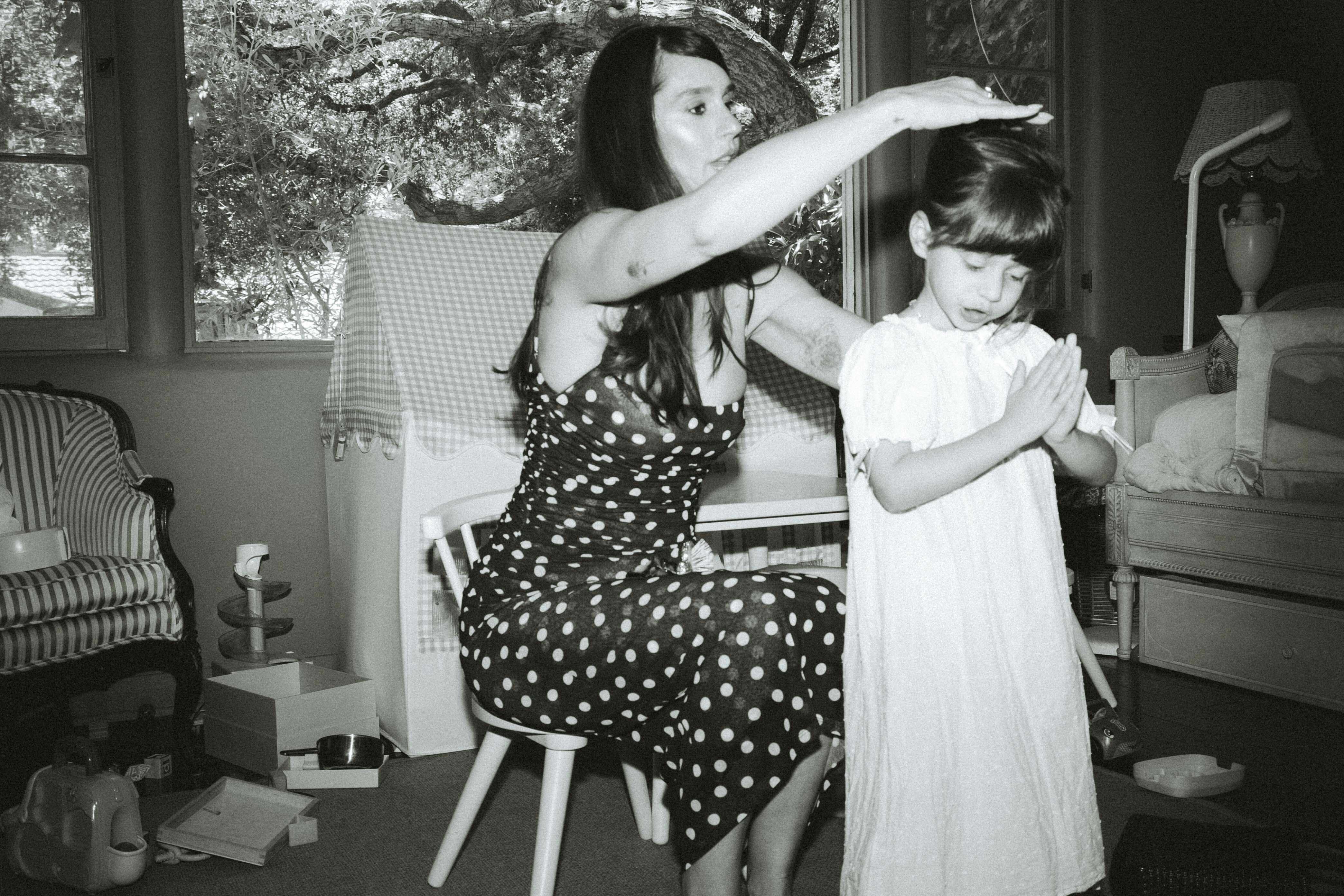
A confusing system, a hard start, and finding the magic
I got connected with a woman yesterday. Her and her 80-year-old mother are raising a 5-year-old autistic boy. She had no f*ing clue what to do. She was texting me trying to connect and I called her. I said, You need to make an appointment with this doctor. You need to do the IEP. You need to get into this program. I rattled off a whole list. She started crying and said she hasn’t had a single person to talk to about this in two years.
Because it’s confusing. You really have to work the system and you hit a bunch of dead ends. And honestly, a lot of the things I’m able to do, the things I know will make the biggest impact for her, come with a great deal of privilege.
Someone sent me a video the other day of a rapper talking about how he learned a whole new language because his son doesn’t speak. He said the eye contact, the way they communicate without words, taught him something profound. There’s a layer of magic to these kids that’s really unbelievable. There’s so much gratitude there. But it’s also really hard. Sometimes she has tantrums and bites herself until she bleeds because she’s frustrated and can’t communicate. That part is fucking brutal.
Carlo has his little schedule but for me, balancing her care is still the hardest part. She has an ABA therapist everyday from 8:30-3pm. On top of that, pre-school and various therapies. Mondays it’s music, PT and swim, Tuesdays/Wednesday speech, and OT on Fridays. I go in and help. I want to see what they’re doing so I can learn and do it. And then sometime if we are in clinic, I’ll check my phone and if Davide is there, he’ll say, Don’t be on your phone in front of her. And I’m like, I have to answer these emails! And then he reminds me that he has emails too. That kind of stuff is challenging, to be fully present both personally and professionally. Everything is a little late. I’m behind on everything, but my work is what pays for all of this.
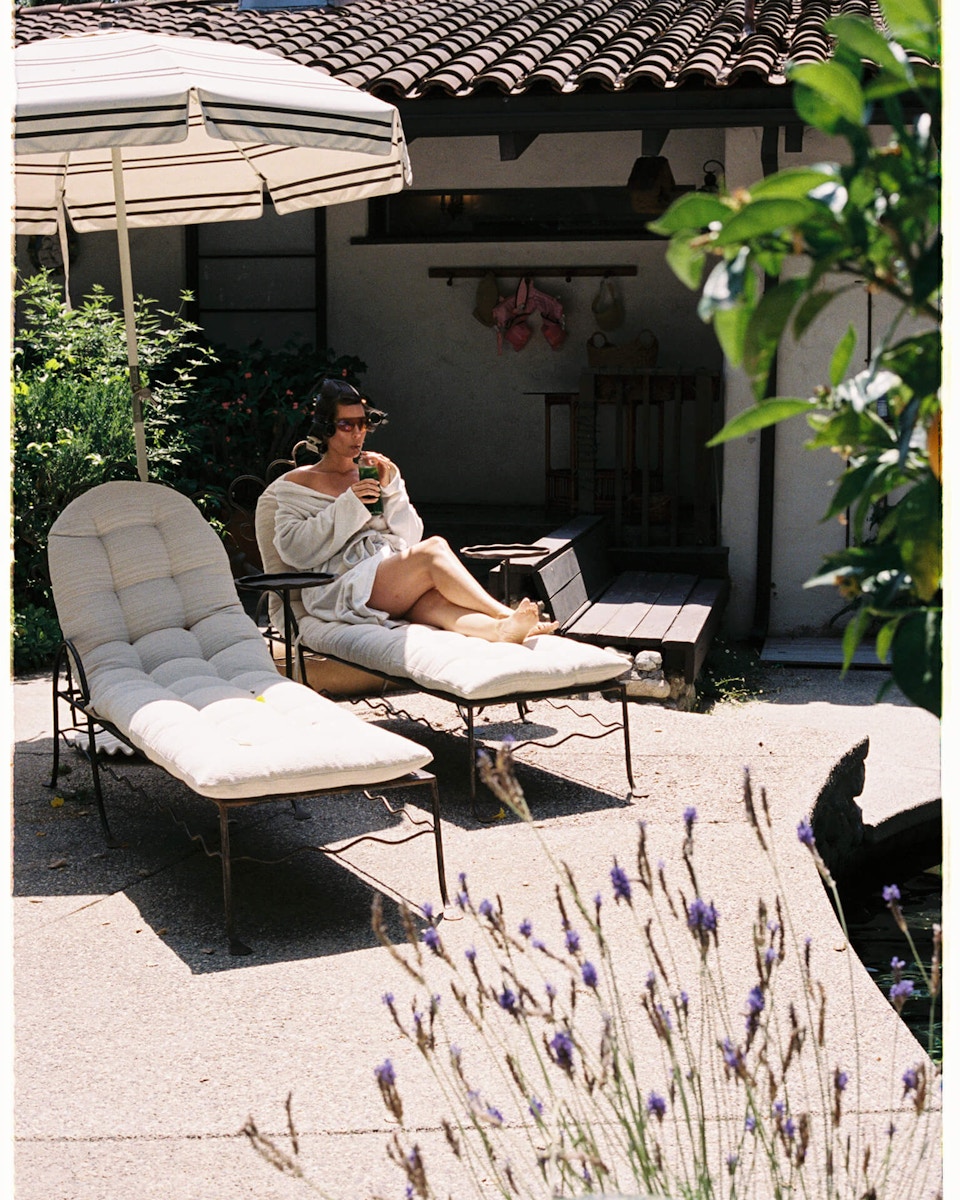
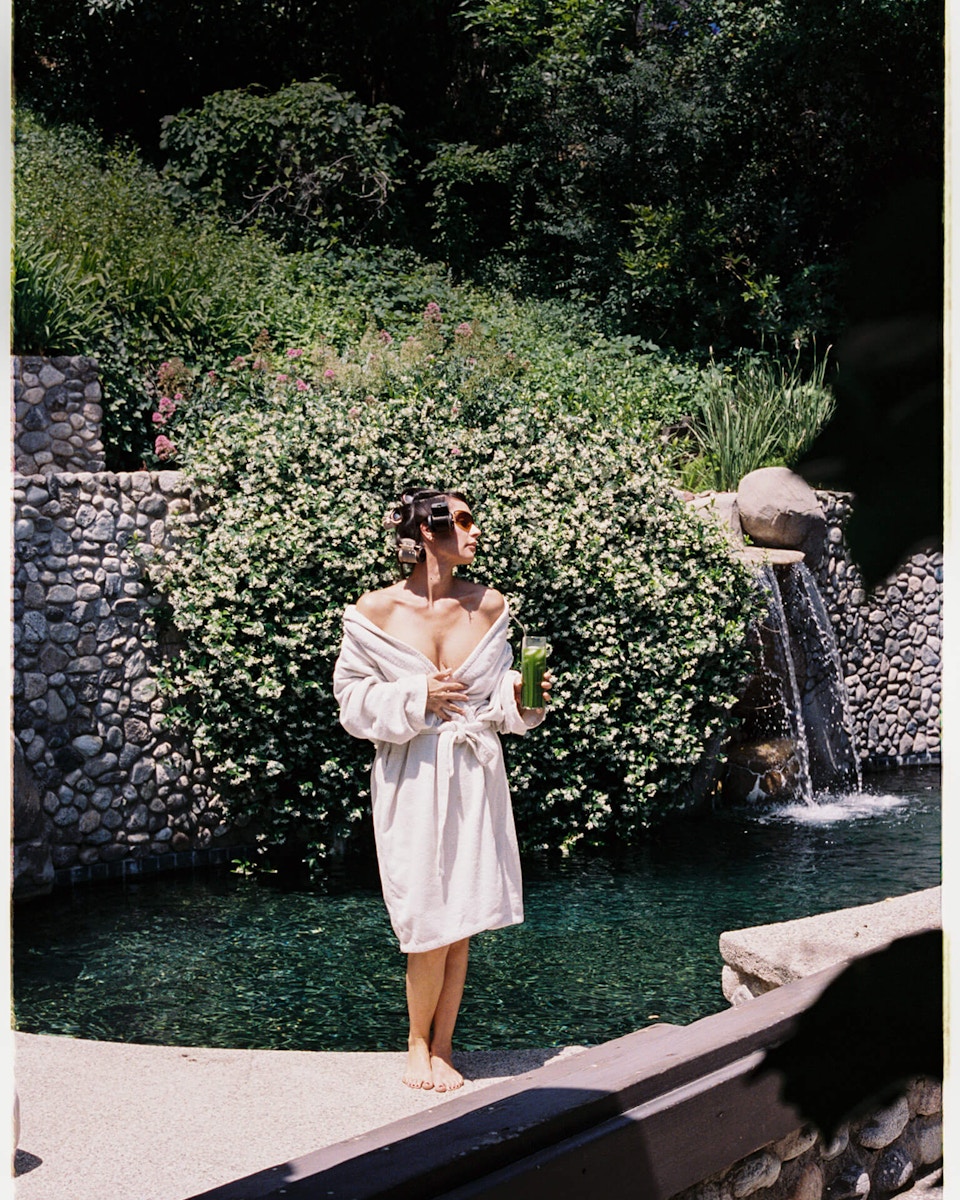
Dream life: a solid eight hours
When we were pregnant with Carmela, Davide and I had a conversation about what we valued most for our relationship, and I said: If we can get them on sleep schedules we’re golden.
And I handled postpartum really well. But the night stuff—that hit us hard. That was the challenge. Davide doesn’t want to sleep separately from us and he wouldn’t. But then he’d wake up in the night and be like, I have to work tomorrow. The issue is that I also had work. We were both fucked. And yes, my mom lives with us, but she doesn’t do the overnight stuff. I would never ask her to. She’s in her 70s. She’s tired. I brought in a night nurse once a week for a month after three months. Just getting that one night of help made such a big difference for our mental health. And sleep is something we value deeply in this house.
Both kids are really happy and content in their own rooms. They love their spaces, and that’s what allows us to function well as a family because they have solid sleep schedules. Honestly, I think part of what makes them cool kids is that they’re not super attached or needy when it comes to space. They’ve learned to be better siblings, better friends, and cooler little humans because they’ve had to share and adapt.
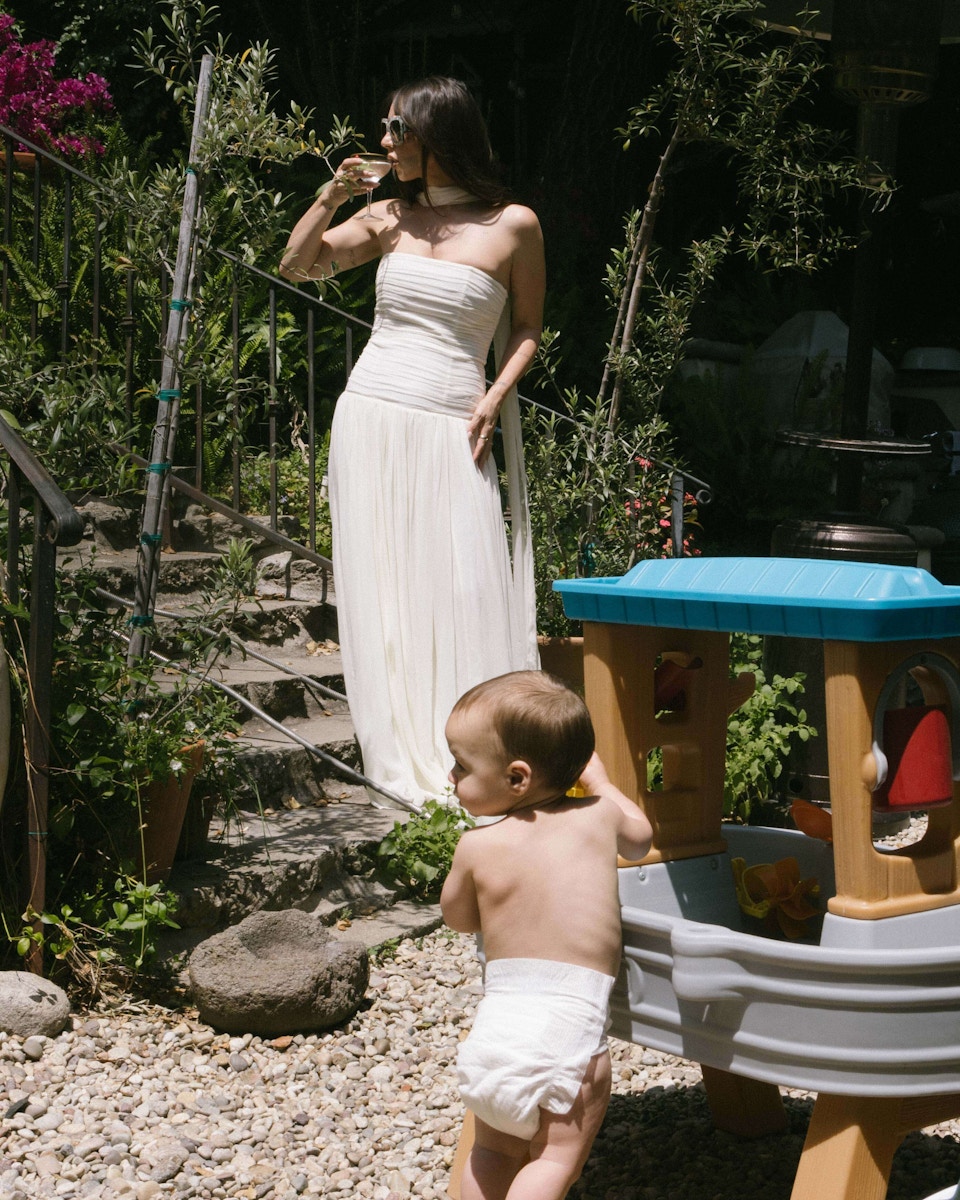
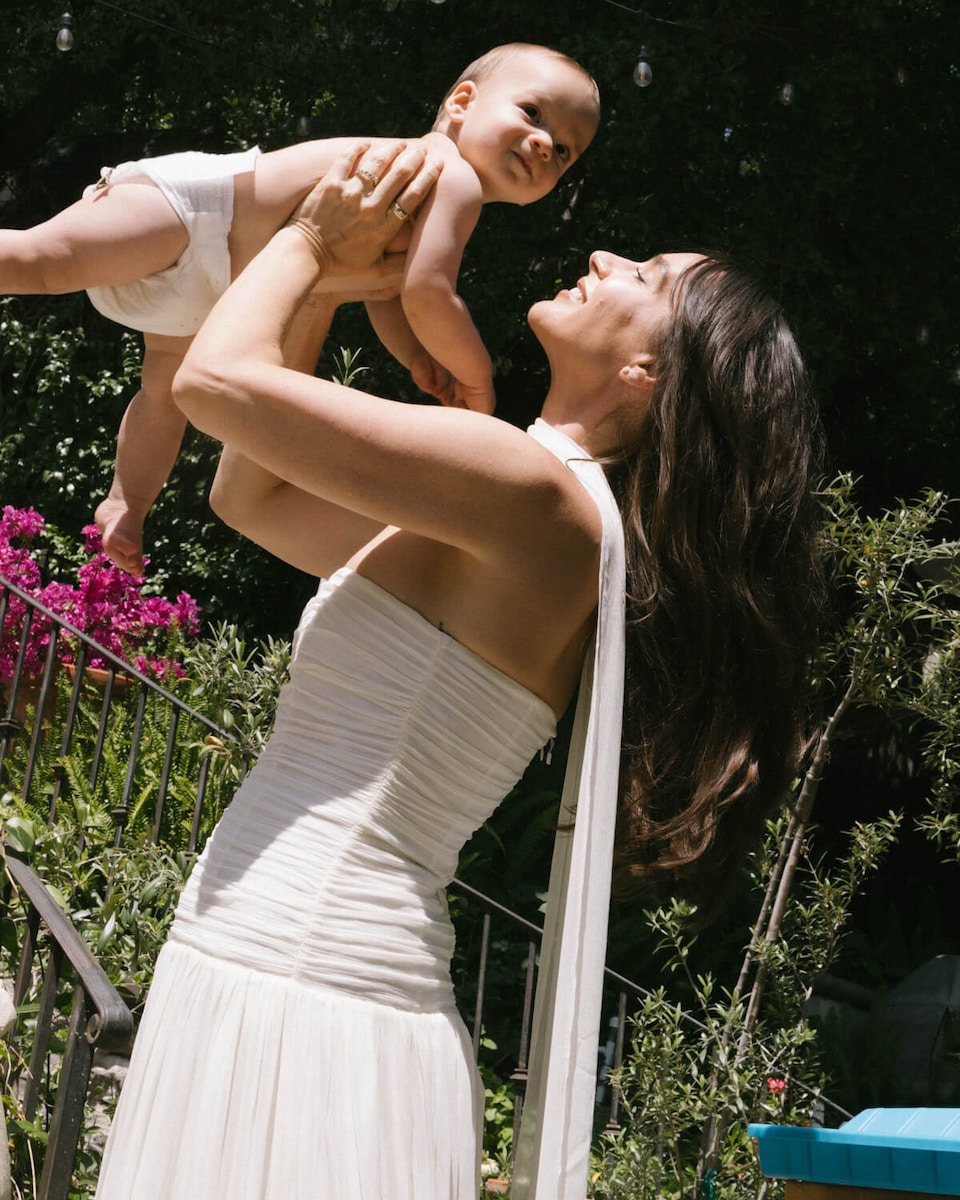
Pia + Davide 4ever
I’ve had people try to use this against me and I think it’s ridiculous, but I’ll say it anyway: My relationship with my husband comes before my relationship with my kids.
That doesn’t mean I’m choosing my husband over my kids if we’re all sitting in a room together. It means I’m not interested in having a codependent relationship with a child who’s hanging on me and sleeping in my bed every night. We prioritize sleep hygiene. Our kids go to bed at 7pm. They LOVE it. Carmela gets into bed herself. And it’s made a massive difference, especially for Carmela. It’s benefited her autism exponentially.
That bedtime schedule gives us time to reconnect. We can go on a date, watch a movie, though if I’m being honest, most nights we’re opening our laptops and finishing work we couldn’t get to during the day. The other night, Davide wanted to see a movie and I really couldn’t go. I said, If I go to a movie with you, I’ll wake up tomorrow in a panic because I have too much on my plate.
We ended up having this really sweet moment where he said he felt bad leaving me out. But I told him that it was important to him and that he should go anyway. That’s how we take care of each other. We make room for our individual needs too. He’ll take the kids to school and bring Carlo with him so I can get a workout in, because he knows how important that is for my mental health. We plan things as a family to make sure everyone’s needs are being met. That’s the goal. We’re all functioning at our happiest that way.
The other day I asked Davide if he thought Carlo is as joyful as he is because he was born that way or because he’s in a joyful environment. And without missing a beat, Davide said, It’s because he’s surrounded by happiness. That’s all he sees.

"My relationship with my husband comes before my relationship with my kids. That doesn’t mean I’m choosing my husband over my kids. It means I’m not interested in having a codependent relationship with a child who’s hanging on me and sleeping in my bed every night."

The most important thing, not the only important thing
I was completely alone with the kids the other day and I had this little glimpse of what it would be like to be a stay-at-home mom. It was awesome. But then Davide looked at me and said, You would fucking die.
My mom was a stay-at-home mom, and I love her deeply, but she was also frantic and constantly busy with all the things that come with that role. And what I’ve found through my own experience is that being a mom and having value outside of motherhood creates this healthy layer of objectivity. It gives you a little bit of space so that not everything your kid does winds you up emotionally. You know what I mean?
Our life now is fun and dynamic and vibrant. We’re home a lot but we also bring the kids with us to all kinds of places. I was a restaurant kid, so we do that too. It’s important to get kids out, let them experience the world, even if it’s loud, even if it tests your patience. It’s good for them.
All the things we did with Carmela, bringing her around people, taking her out, sleep training, baby-led weaning, introducing her to a wide range of foods, have actually helped her autism in ways that are hard to even describe. A lot of kids on the spectrum have sleep challenges or sensory issues with food. Getting her used to stimulation, to variety, to being in the world has helped her so much.
She’s also in behavioral therapy where a shadow accompanies her to school. And I pay out of pocket for that school because being around neurotypical kids helps her and it also teaches those kids empathy and awareness of neurodivergent children.
And I know this: if she were sitting at home with a therapist all day, she’d go stir-crazy. It would be boring. There’s not a world where she won’t have to learn to be part of society. I wish I could build a little world for us and keep her in it forever but I’m going to die one day. So I’m doing everything I can now to prepare her.

"Being a mom and having value outside of motherhood creates this healthy layer of objectivity. It gives you a little bit of space so that not everything your kid does winds you up emotionally."

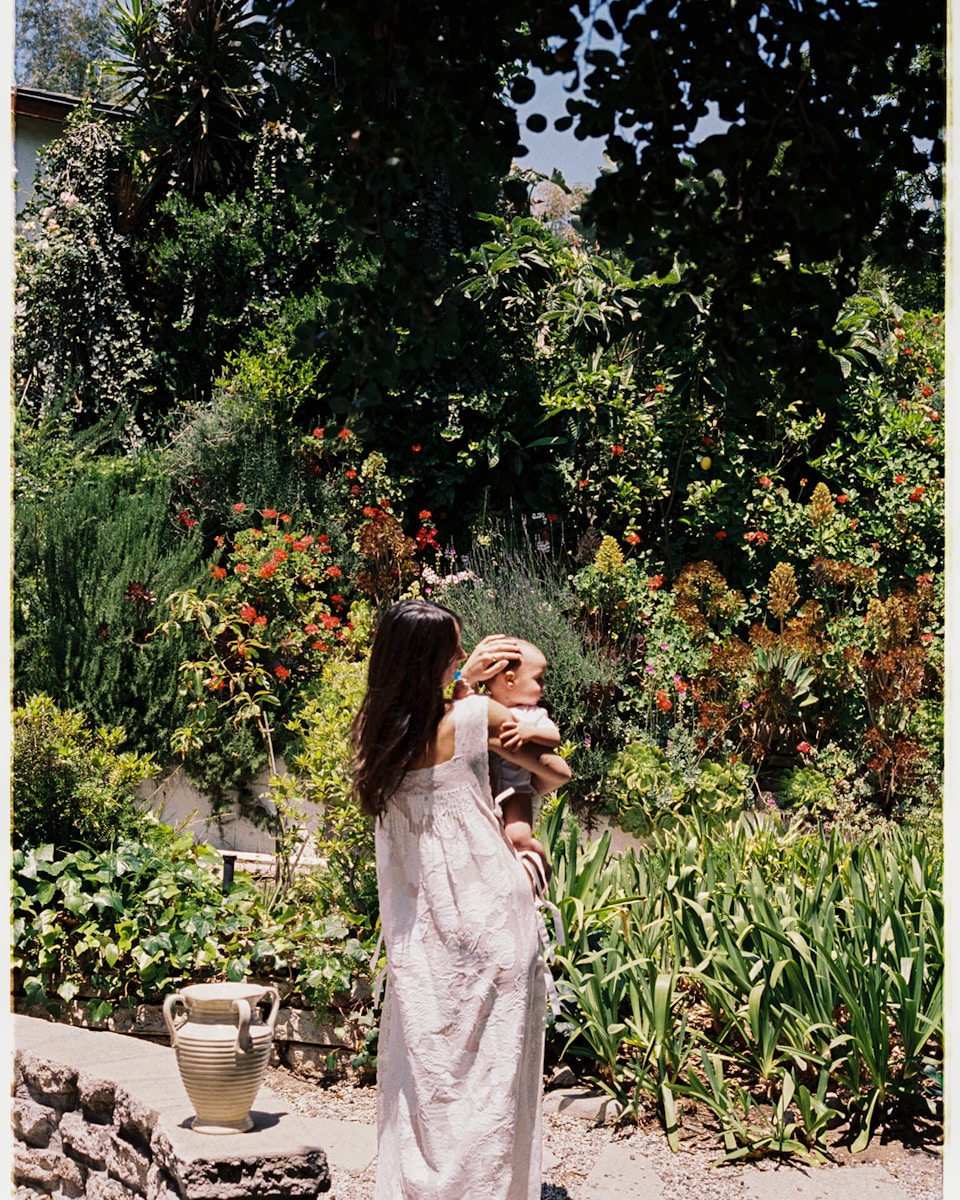
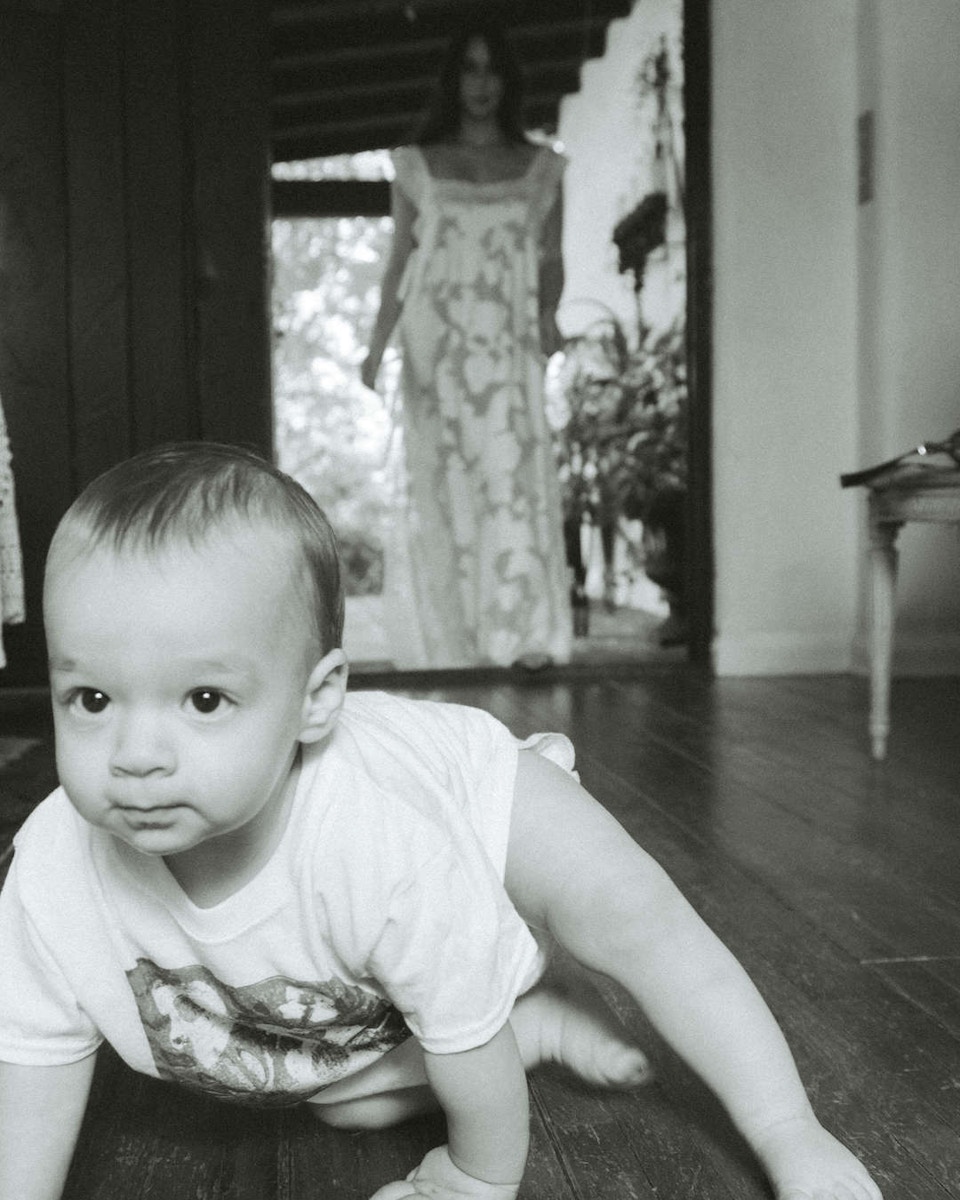
“That person is no fun to be around”
Parenting has become so anxiety-ridden. But I can’t be anxious. I don’t want to live that way. I won’t live that way. I have a daughter with severe autism. She’s never called me mom. She doesn’t hug me. If I let go of her in public, she’ll run into the street. It’s dangerous. It’s really, really hard.
Now imagine layering anxiety on top of that. I’d be a complete mess. I’d be waking up every day spiraling, like, What’s she going to do today? Will she ever have a job? What happens to her when I die?
I can’t live like that. Hormones, guilt, societal pressure, it’s all there. But I won’t be that person. That person is no fun to be around. That person is not a good partner. And I want a sexy relationship with my husband. That’s how our relationship started. I want to stay close to him. I want to find value in myself not just as a mom, but as a whole person.
It’s so much. The amount of paperwork. The phone calls. The testing. The doctor bills. I’m $800 a week out of pocket for therapy. Thousands of dollars a month. She takes two prescriptions, one of them is $300, and eight supplements a day. I can’t get stuck in the minutiae. It’ll drive me insane. I have to keep moving forward.
Can I tell you something that was actually great advice? A mom reached out to me on Instagram and said I should keep a daily log of Carmela’s activities to track her patterns. I mentioned this to her doctor and she responded, You’re not an anxious person. Don’t make yourself one. Everything in your home is already happy, fun, and light. and that’s what your daughter needs. You’re doing a lot. What time she woke up? It doesn’t matter. I thanked her.
My mom and I have a saying: Don’t major in the minors. It’s helped me so much.
"Parenting has become so anxiety-ridden. But I can’t be anxious. I won’t live that way. I have a daughter with severe autism. She’s never called me mom. She doesn’t hug me. It’s really, really hard."

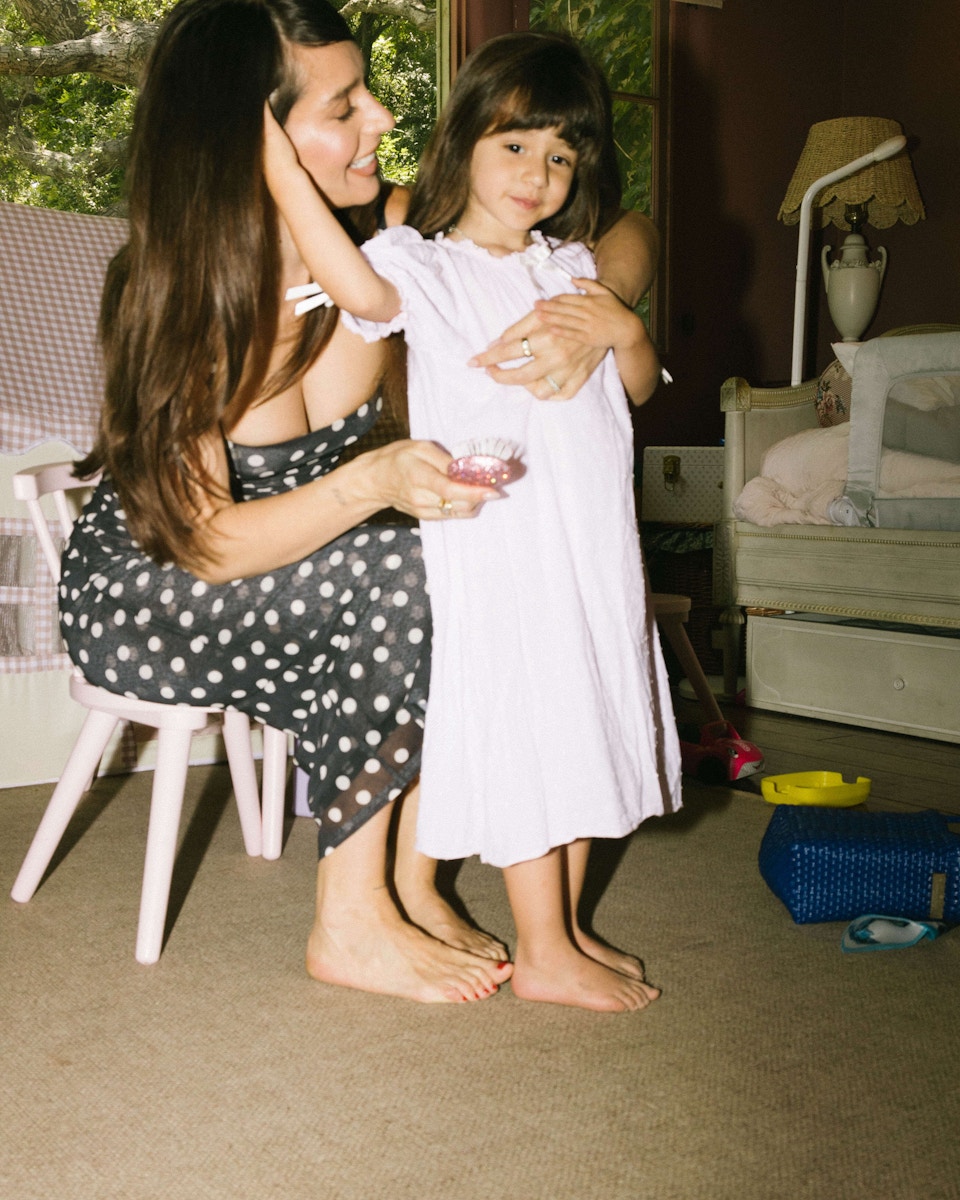
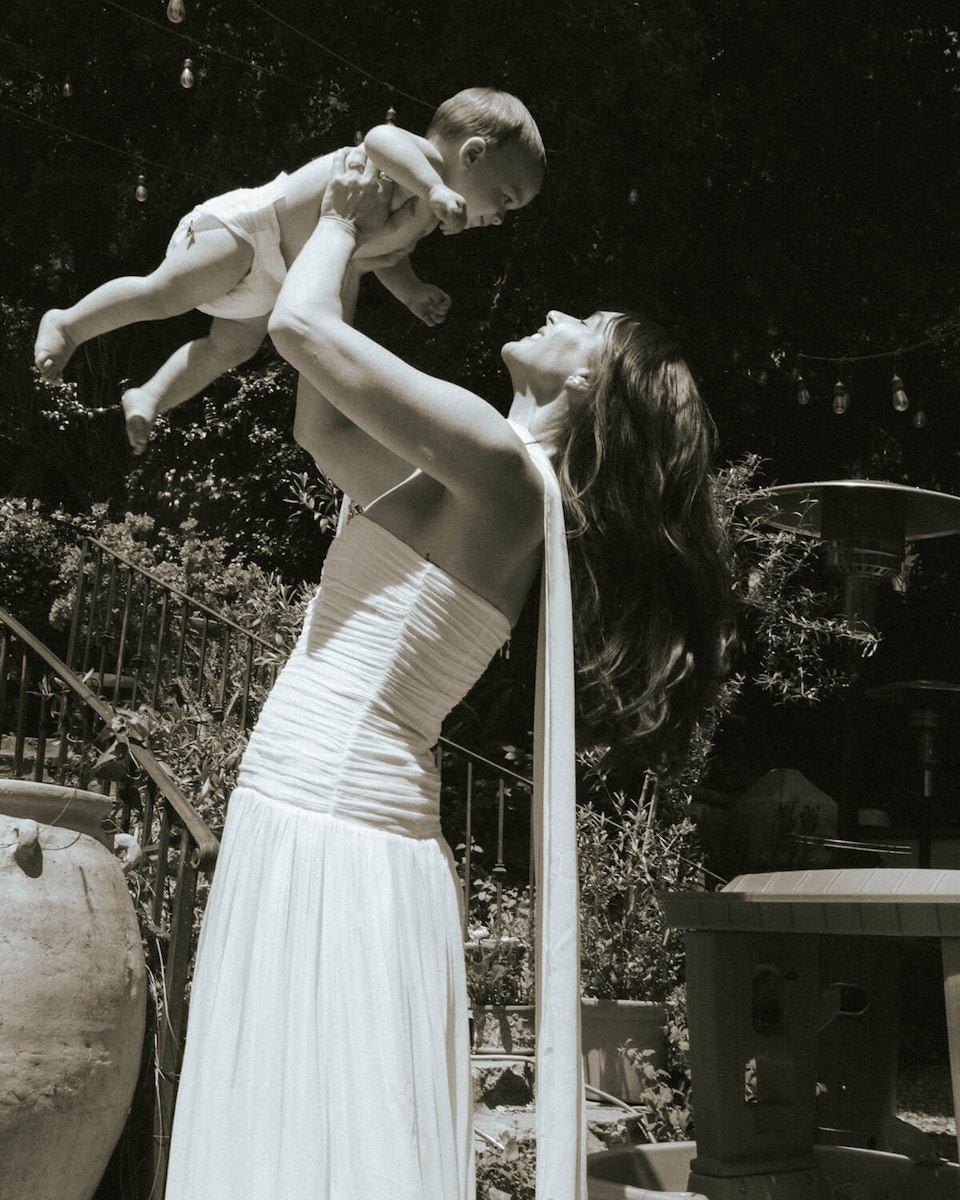

"Now imagine layering anxiety on top of that. I’d be a complete mess. I’d be waking up every day spiraling: What’s she going to do today? Will she ever have a job? What happens to her when I die? Hormones, guilt, societal pressure, it’s all there. But I won’t be that person. That person is no fun to be around. That person is not a good partner."
Everything is the best when it’s not the worst
What I’ve learned from trying to conceive, to giving birth, to postpartum, to an autism diagnosis is that nothing is ever in your control. Nothing.
You have a miscarriage, and that's traumatic. You get pregnant again and you’re terrified of birth. Then you’re scared of postpartum. Then your baby is here, and there’s a whole new wave of fear. You see these stories on Instagram: here’s the trauma and here’s the beautiful redemption. But the truth is, it keeps happening. The vulnerable stuff never ends.
And what I’ve learned through motherhood is that it’s all out of control. What defines you is how you respond to it. Because life is just… wild. There is tragedy and chaos happening all around us. It’s horrifying. So for me, it’s about being the best I can, finding joy, doing what I can for my community, and being light whenever possible. Not by ignoring things, but by choosing to move through them with grace.
